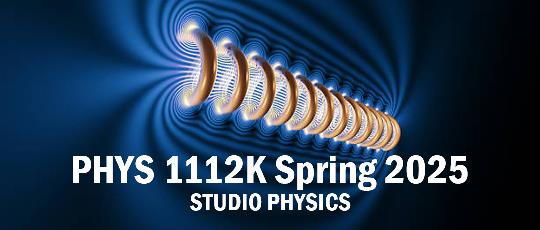
NSF IUSE Project: Spring 2025 SMART Deployment in PHYS 1112K 🔗
April 3, 2025
In Spring 2025, our research team implemented the SMART system in PHYS 1112K, an introductory physics course at Georgia State University. This work is part of the NSF-IUSE project, “AI-Scaffolded Pre-Classroom Learning for Undergraduate Physics Courses.”
This full-semester deployment builds on a pilot study we conducted in 2024. During the pilot phase, we focused on three key goals: redesigning two introductory physics courses to include AI-supported pre-classroom learning activities, testing the revised curriculum in PHYS 1111K and PHYS 1112K with Co-PI Dr. M. Shammer Abdeen, and improving SMART’s formative feedback features. As part of this work, we developed a generative AI-based expert modeling tool to help instructors create high-quality summaries.
In the Spring 2025 deployment, SMART was integrated into 8 modules. Students followed a structured pre-class routine: textbook reading, SMART summary writing (with AI-generated feedback and revision), pre-lecture quizzes, and in-class problem-solving. A control group completed similar activities using traditional methods.
In this phase, we aim to address three main research questions: 1) To what extent does AI-augmented feedback help engage students in building mental models of STEM content during pre-classroom learning? 2) How does AI-scaffolded student knowledge attainment influence their achievement levels for cognitively demanding tasks (e.g., problem-solving) in classrooms, self-efficacy, motivation, and interest in STEM (i.e., Physics)? 3) What are the positive or negative effects of the AI-augmented learning environments on students’ well-being (e.g., physical, mental, and social flourishing of individuals influenced by the intervention)?
We are collecting quantitative data (e.g., SMART usage logs, quiz/homework/exam scores, survey results) and qualitative data (e.g., student reflections, focus group interviews).
This summer, we plan to offer SMART mentoring sessions to faculty and graduate instructors at Georgia State University and share the platform with educators at other institutions to expand its reach.
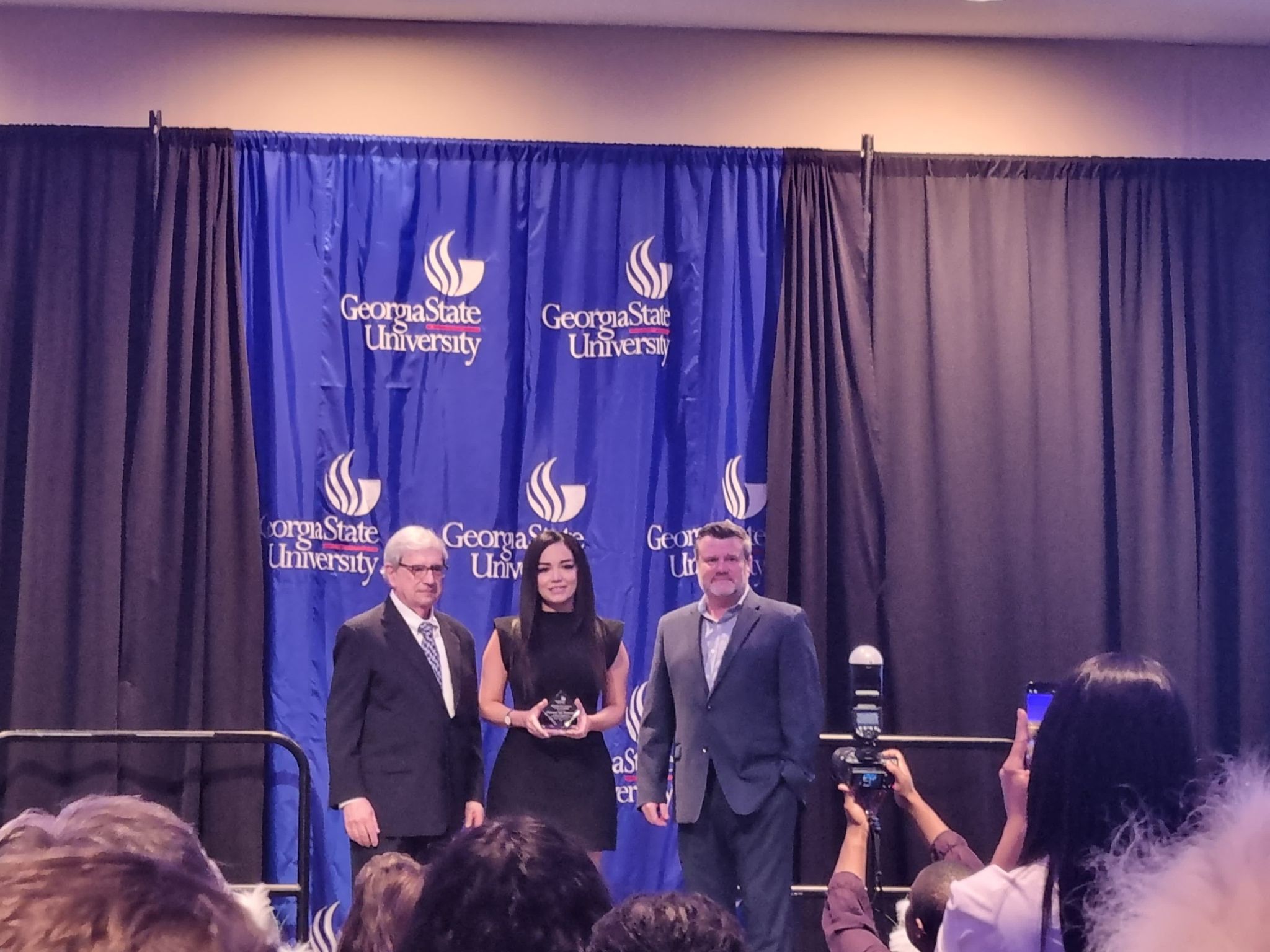
Award received by Lia Haddadian 🔗
April 1, 2025
Our graduate associates, Lia Haddadian won the Outstanding Ph.D. Student in Learning Technologies Award from the Department of Learning Sciences at the College of Education & Human Development at Georgia State University (GSU).
The Outstanding Ph.D. Student in Learning Technologies Award is given to a student who has demonstrated potential for excellence in research, teaching, and service in instructional technology.
Congratulations!
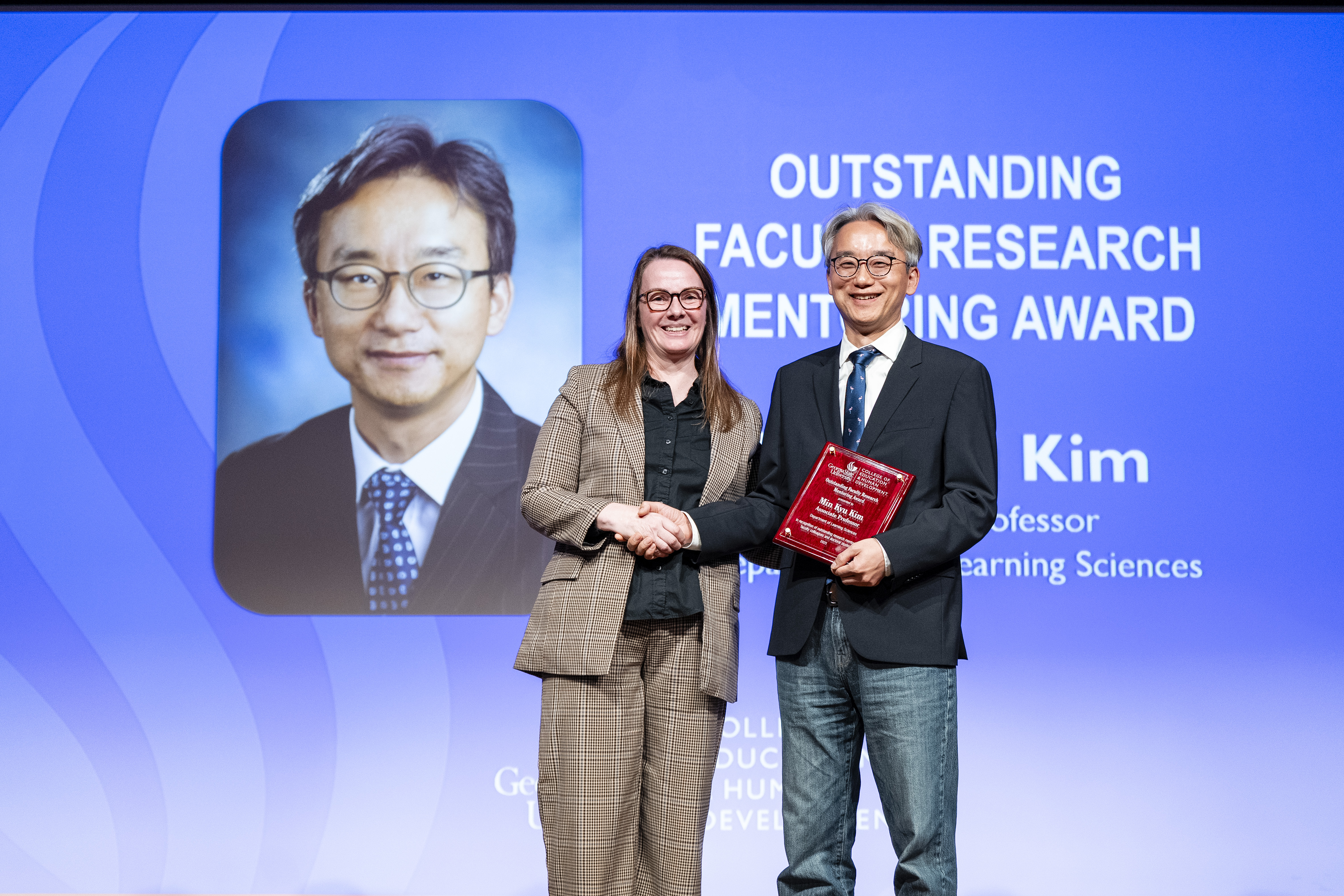
Dr. Min Kyu Kim Honored at CEHD Faculty and Staff Awards Ceremony 🔗
March 27, 2025
We are proud to share that our director, Dr. Min Kyu Kim, was recognized at the College of Education & Human Development’s annual Faculty and Staff Celebration. Dr. Kim received the Outstanding Faculty Research Mentoring Award, which recognizes a full-time faculty member who fulfills in an exemplary way the college’s commitment to providing mentoring in the conduct of research to faculty colleagues and doctoral students.
Outstanding Faculty Research Mentoring Award - Dr. Min Kyu Kim
Dr. Min Kyu Kim is the 2025 recipient of the Outstanding Faculty Research Mentoring Award, which recognizes a full-time faculty member who fulfills in an exemplary way the college’s commitment to providing mentoring in the conduct of research to faculty colleagues and doctoral students.
Dr. Kim is an associate professor in the Department of Learning Sciences. As a leading researcher in educational artificial intelligence (AI), Dr. Kim has dedicated his work to designing AI technologies that offer personalized learning support while helping educators adopt problem-centered teaching practices. He has advised 17 doctoral students, serving as dissertation chair for eight of them and as a committee member for others, including one at the Georgia Institute of Technology. His successful funding endeavors have supported 12 full-time graduate research assistants, and he has supervised internships for two doctoral students.
In 2022, he established the AI2 Research Laboratory, an interdisciplinary and cross-institutional collaboration uniting experts in learning sciences, computer science, STEM education and literacy. The lab has engaged 24 undergraduate interns in AI-powered application projects and structured lab meetings to discuss research progress and development. Thanks to his mentorship, they have co-authored 13 journal articles, 13 prestigious conference proceedings and 25 presentations at national and international conferences.
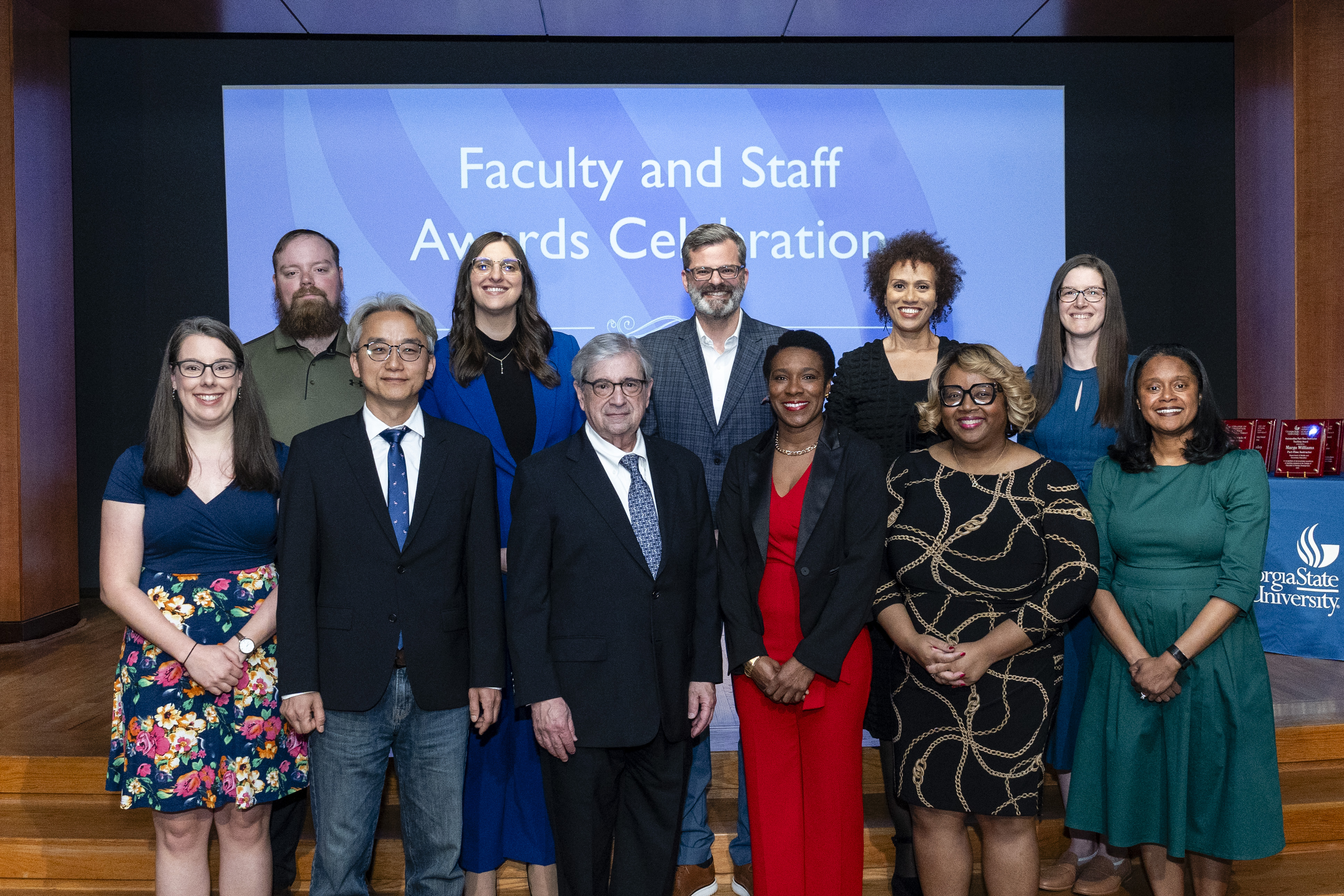
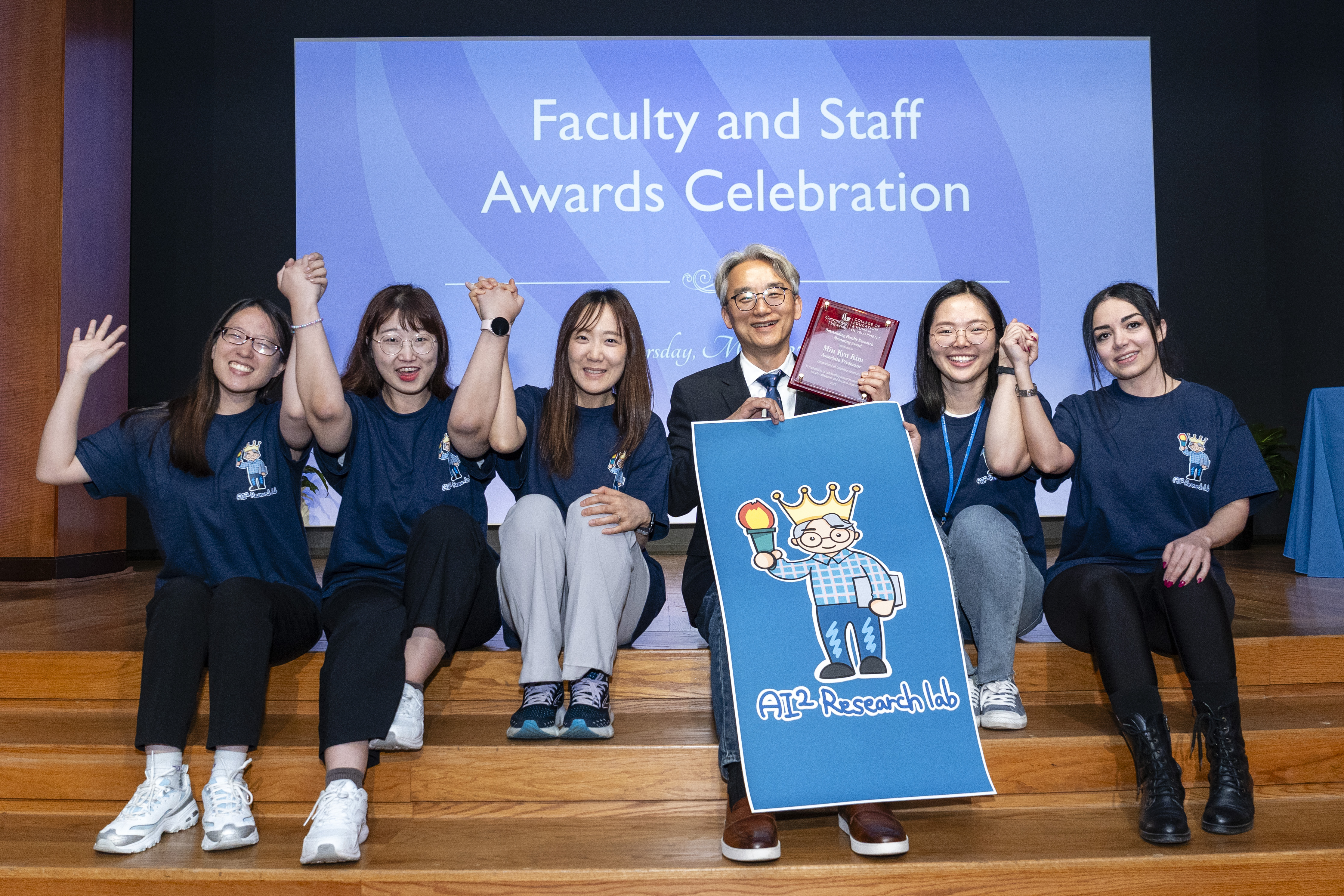
Read more about the Faculty and Staff Awards:

AI2 Research Lab Spring Feast 🔗
March 24, 2025
We gathered at Dr. Min Kyu Kim's home for our spring semester feast during the spring break on March 18th! It was a warm and lively gathering, not only with our lab members but also with other professors we know!
Everyone brought delicious dishes for a potluck meal, and we had fun conversations full of stories and laughter. One of the highlights of the evening was playing Yutnori, a traditional Korean board game that brought out everyone’s competitive spirit and added lots of fun to the night.
It was a wonderful time spent together, making us all feel even more connected as a lab family. We're already looking forward to the next one!
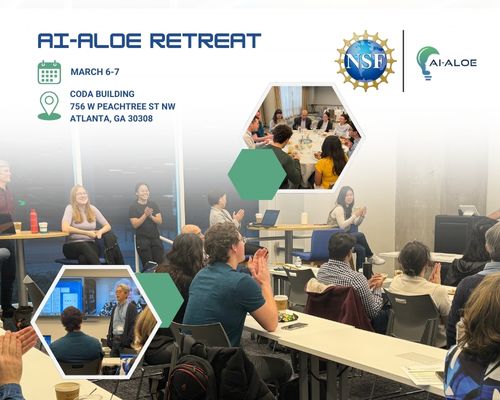
AI-ALOE's Spring Retreat 🔗
March 14, 2025
Our SMART team at AI-ALOE (Dr. Min Kyu Kim, Jinho Kim, and Yoojin Bae), along with other AI2RL members (Hyunkyu Han and Seora Kim), attended AI-ALOE's Spring Retreat on March 6-7 at the Coda Building, Georgia Tech. This year’s retreat saw the highest participation yet, with approximately 40 attendees joining either in person or virtually. During the meeting, our graduate associates Jinho and Yoojin had their presentations.

The first day focused on Design & Architecture in the morning, where Jinho Kim represented our team and presented SMART's design guidelines before engaging in breakout group discussions. In the afternoon, the focus shifted to Theory, Integration & Partnership, where Yoojin Bae shared insights on the confluence and integration of our teams, followed by further discussions.

On the second day, participants explored key topics including risk assessment, contingency planning, commoditization, and data sharing, with discussions divided into self-selected groups.
The retreat provided opportunities for deep discussions, knowledge exchange, and strategic planning.
For more information about the Annual Review Meeting, please visit the following link:
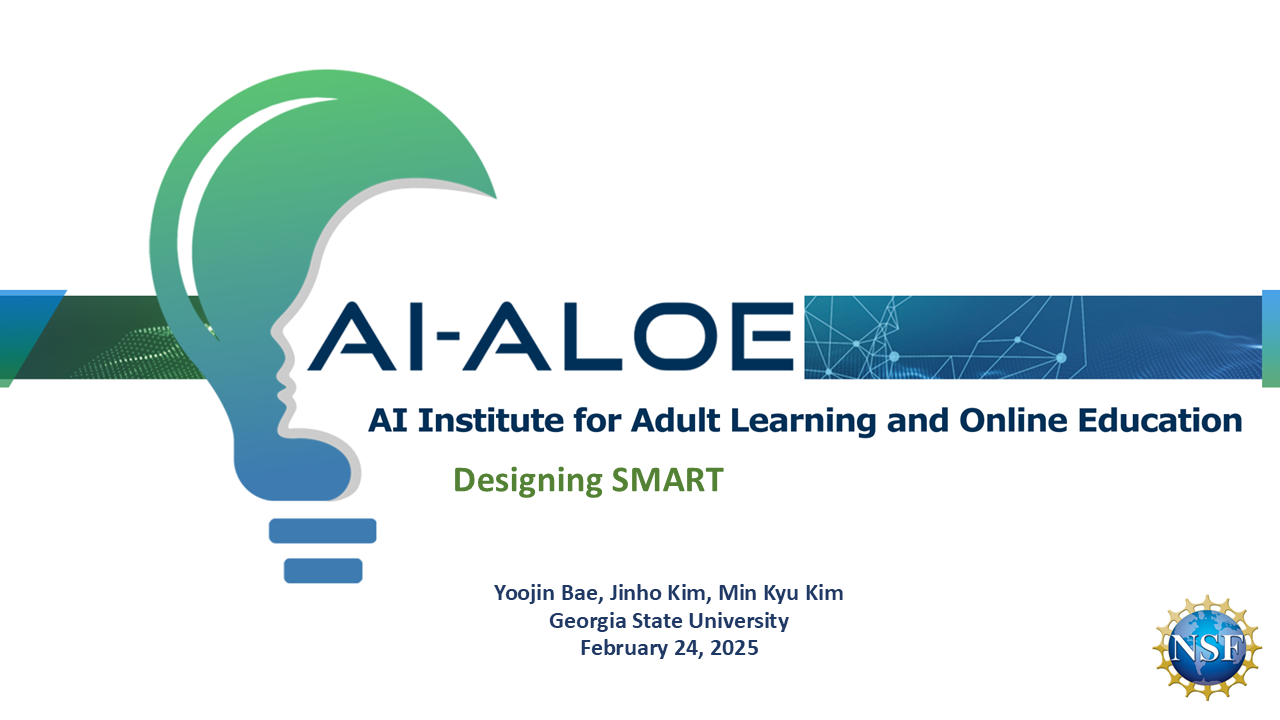
Presentations at the AI-ALOE Foundational and Use-Inspired AI Meetings 🔗
March 1, 2025
Our SMART team at AI-ALOE (Dr. Min Kyu Kim, Jinho Kim, and Yoojin Bae) presented at the biweekly Foundational and Use-Inspired AI meetings on February 24. During our presentation, we shared key aspects of SMART's design, starting with its overarching goal and our approach, which incorporates a whole-person perspective.
We highlighted the theoretical foundations that underpin SMART and discussed the design guidelines we developed, starting with an explanation of the structural framework we used. Additionally, we demonstrated how SMART guidelines fit within this framework by providing examples to illustrate their application.
Finally, we reflected on our experience preparing for this presentation, sharing insights gained throughout the process. We look forward to hearing from the other teams at AI-ALOE and learning about their design guidelines!
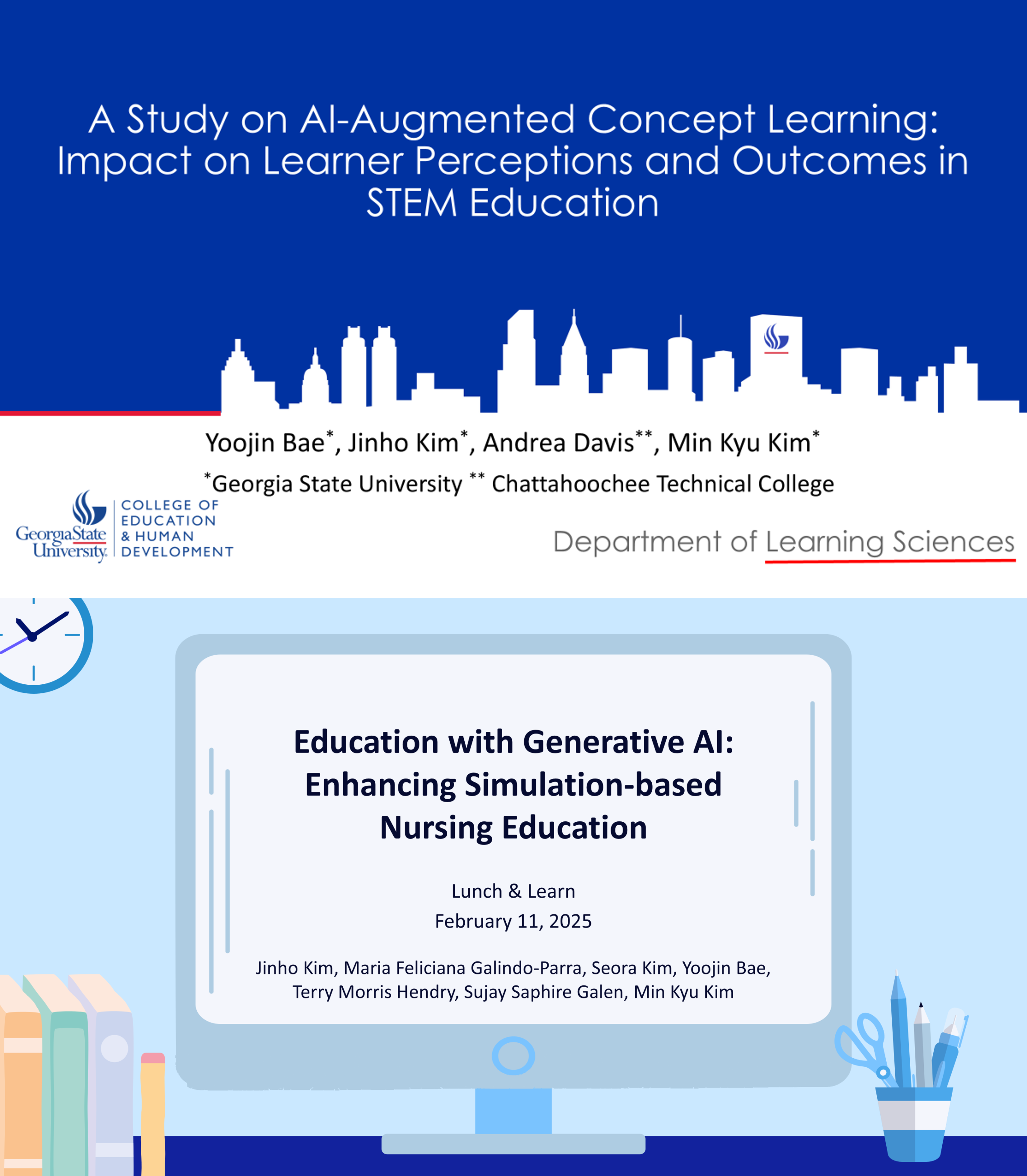
Lunch and Learn Talks 🔗
February 20, 2025
Our graduate research associates, YB and JK, presented at Georgia State University's Department of Learning Sciences Lunch and Learn on February 11th. The talk was held both in person and remotely via Webex, with approximately 20 attendees, including faculty members and graduate students from across the department.
A Study on AI-Augmented Concept Learning: Impact on Learner Perceptions and Outcomes in STEM Education.
Presented by Yoojin Bae
This study explores the efficacy of AI-enhanced concept learning among adult learners, aiming to bolster their comprehension and facilitate the transition to embracing technology, refining metacognitive reading strategies, and improving subsequent knowledge test scores. Leveraging an AI-driven formative assessment feedback system, named SMART, AI integration was implemented in pre-class activities within a Biology course. Learners demonstrated enhanced mental models of STEM readings, and while the levels of technology acceptance were not statistically significant, we observed numerical increases in perceived AI usefulness. However, no significant relations were found with perceived ease of use and metacognitive awareness. The impact of concept learning through SMART on knowledge test scores demonstrated partial visibility. This research underscores the holistic integration of AI tools, highlighting the importance of educators to align instructional methods such as AI with learning objectives, content, assessment tests, and learners’ AI literacy levels, particularly within the domain of online STEM education.
Based on: Bae, Y., Kim, J., Davis, A., & Kim, M. K. (2024). A Study on AI-Augmented Concept Learning: Impact on Learner Perceptions and Outcomes in STEM Education. In Lindgren, R., Asino, T. I., Kyza, E. A., Looi, C. K., Keifert, D. T., & Suárez, E. (Eds.), Proceedings of the 18th International Conference of the Learning Sciences - ICLS 2024 (pp. 1450-1453). International Society of the Learning Sciences.
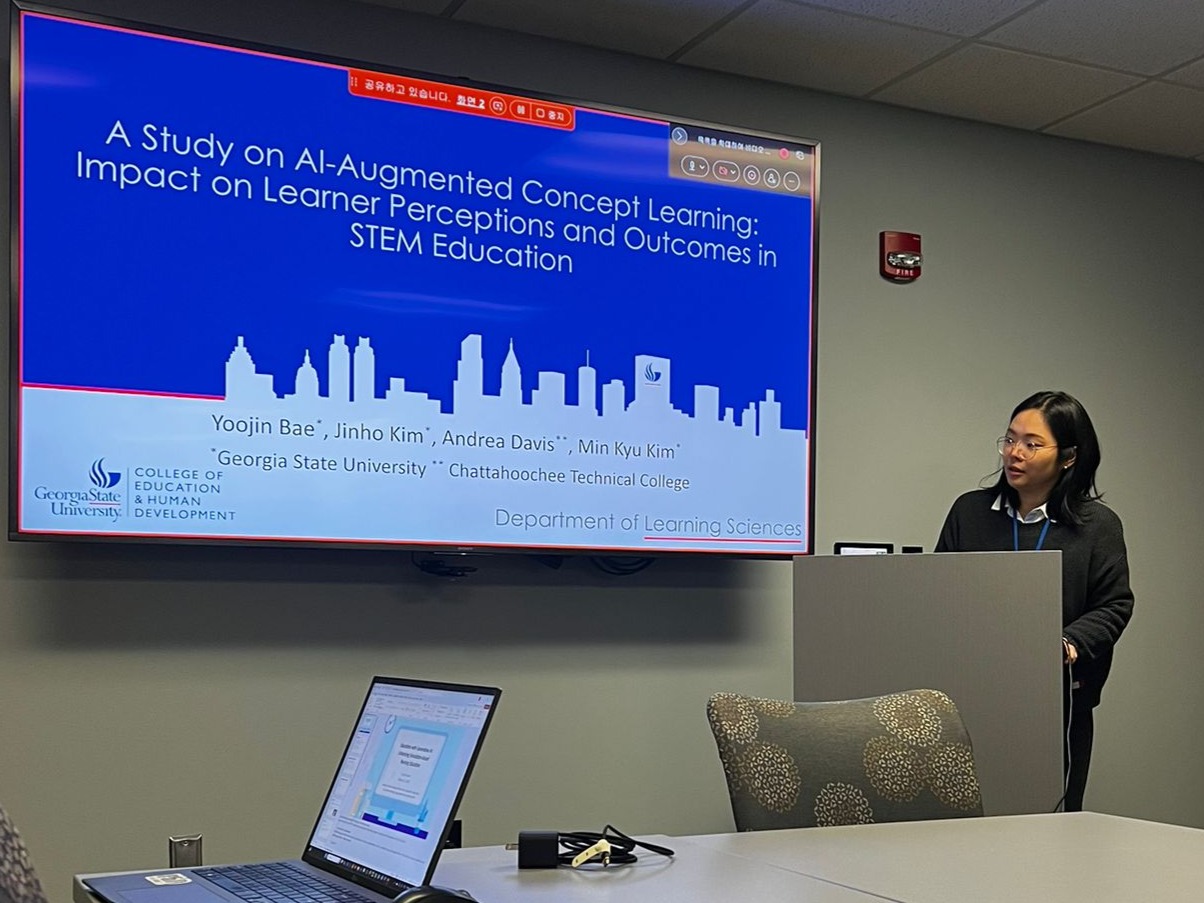
Education with Generative AI: Enhancing Simulation-based Nursing Education.
Presented by Jinho Kim
Simulation-based learning is a vital component of nursing education, but often faces challenges, due to reliance on human simulation operators, which limits scalability and authenticity. This study aims to address these challenges and enhance scenario-based simulation learning through the use of generative AI as a role-playing agent in nursing simulations. Using an existing simulation scenario from a bachelor’s-level nursing course and a design-based research approach, we iteratively developed an evaluation framework, and a simulation interaction question set to evaluate the performance of generative AI models. The findings highlight strengths, such as accurate role-based dialogue generation, and limitations, including challenges with common-sense reasoning. Recommendations for leveraging generative AI in simulation-based learning include refining the evaluation framework to articulate clearer distinctions between criteria, designing question sets that integrate in-context and out-of-context prompts to comprehensively evaluate AI’s ability to handle ambiguities, and refining scenarios through iterative feedback to ensure consistency and clarity
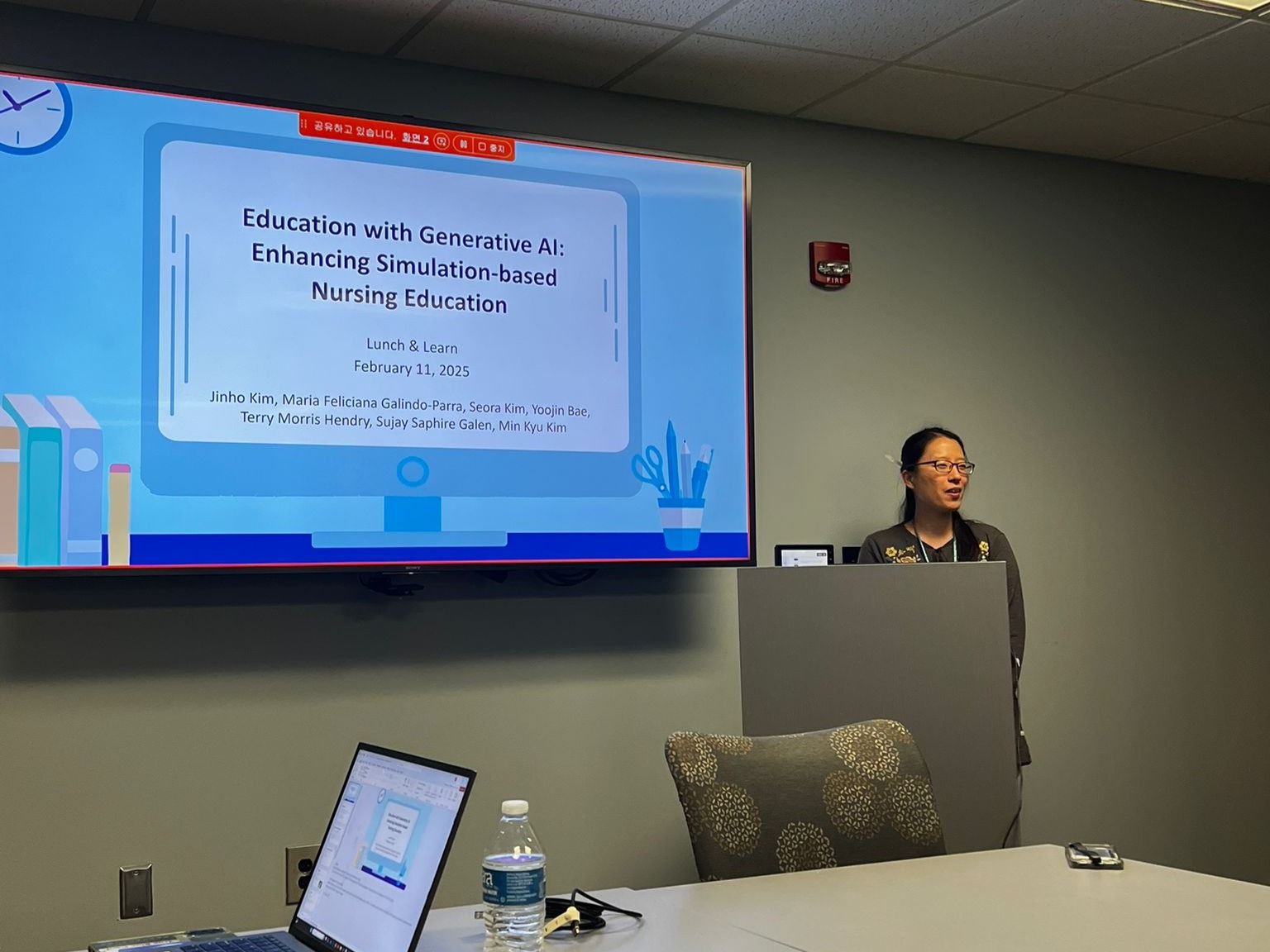
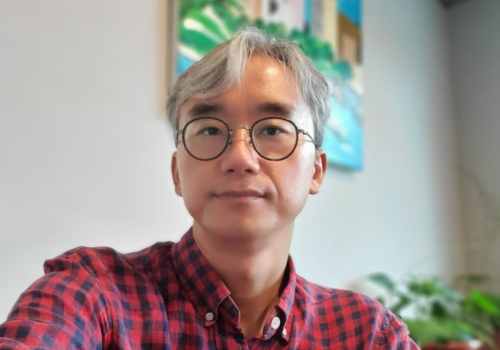
Dr. Min Kyu Kim Receives Outstanding Faculty Research Mentoring Award 🔗
February 13, 2025
Our director, Dr. Min Kyu Kim, has been awarded The Outstanding Faculty Research Mentoring Award! This prestigious honor recognizes a faculty member who demonstrates exceptional commitment to mentoring faculty colleagues and doctoral students in research.
Contributions to Research and Mentorship
The award’s selection criteria includes serving as a senior partner in critical research topics, providing guidance on advanced research design and analysis, and assisting in securing external funding from governmental and foundation sources. Dr. Kim’s extensive experience in fostering interdisciplinary and cross-institutional collaborations has significantly contributed to the development of emerging scholars in the field of educational technology.
His work focuses on designing AI-driven learning technologies that offer personalized support to students and provide educators with insights into individual learning progress. As the founder of the AI2 Research Laboratory, he has spearheaded initiatives that integrate artificial intelligence with educational research to advance learning sciences.
Development of the SMART System
One of Dr. Kim’s notable contributions is the development of the Student Mental Model Analyzer for Research and Teaching (SMART) system, an AI-powered platform designed to enhance concept learning among adult learners. Implemented in English and Biology courses at Technical College System of Georgia (TCSG) institutions, SMART has demonstrated its effectiveness in engaging students, improving motivation, and supporting instructors with real-time insights into learner progress. His ongoing research includes the integration of data visualization tools and generative AI techniques, such as ChatGPT, to further personalize learning experiences.
Lasting Impact on Education
Dr. Kim’s commitment to advancing educational technology and mentoring the next generation of researchers has left a lasting impact. His recognition with The Outstanding Faculty Research Mentoring Award reflects his unwavering dedication to fostering research excellence and innovation in education.
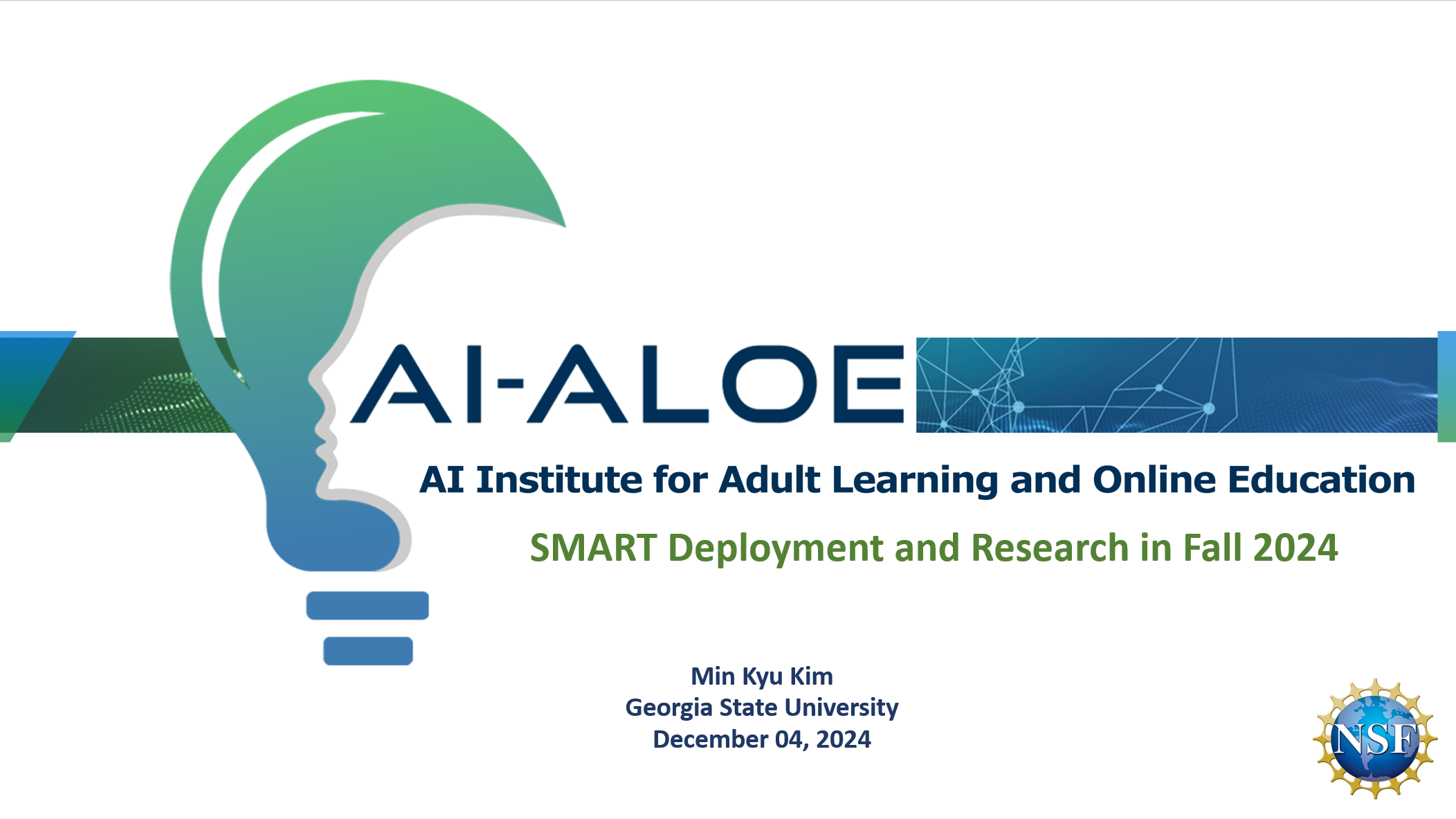
External Advisory Board Meeting Presentations 🔗
December 4, 2024
During AI-ALOE's External Advisory Board meeting on December 4th, our director, Dr. Min Kyu Kim, presented on SMART Deployment and Research in Fall 2024 within the AI Technologies and Adult Learning section.
Dr. Kim began by outlining the educational goals tailored to fostering engaged learning for adult learners and presenting the foundational adult learning theories underlying the SMART design. He highlighted the implementation of user-centered instructional design through an example class deployed this semester. Additionally, Dr. Kim shared insights from the lab's theory-driven research, including data collection efforts and preliminary analysis, and outlined the future research plans aligned with the project's objectives.
This meeting served as a valuable opportunity to showcase progress and receive constructive feedback from the advisory board members.
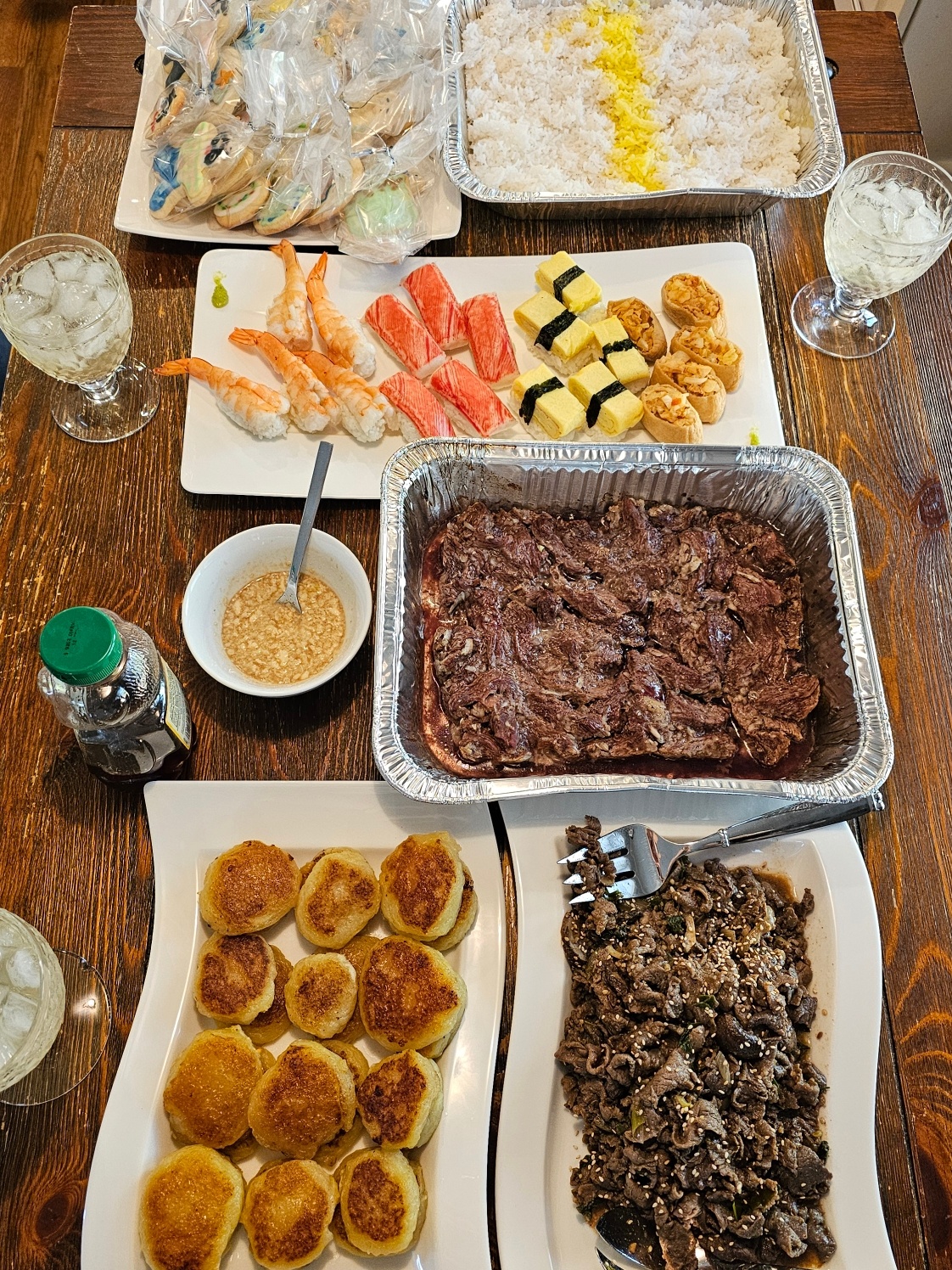
AI2RL Lab Thanksgiving Feast 🔗
November 27, 2024
On November 27th, our lab came together at Dr. Kim's home to celebrate Thanksgiving with a joyful potluck gathering. The table was overflowing with a wide variety of delicious dishes, including meat skewers, beef, sushi, bulgogi, potato pancakes, and homemade cookies!
We spent the day sharing laughter and stories, enjoying each other's company over amazing food. It was a wonderful opportunity to relax and recharge after a semester of hard work and dedication as a lab.